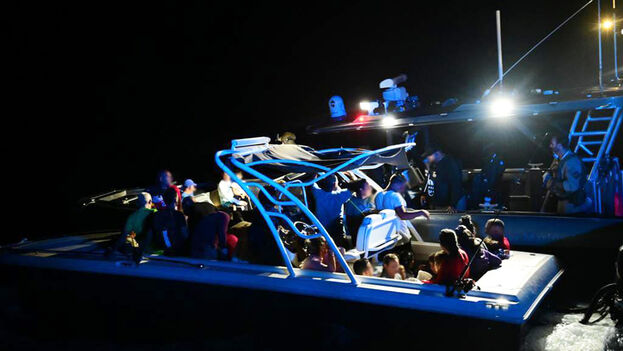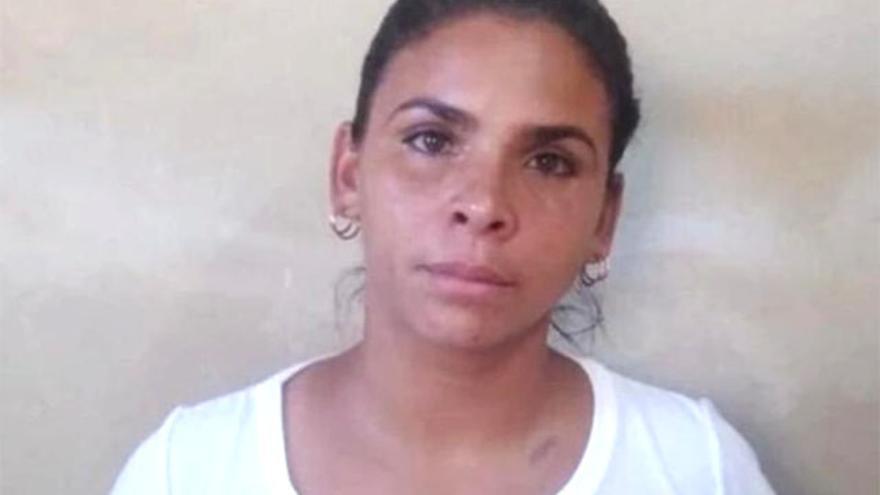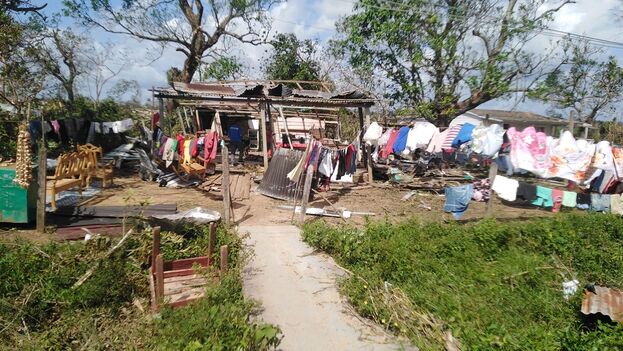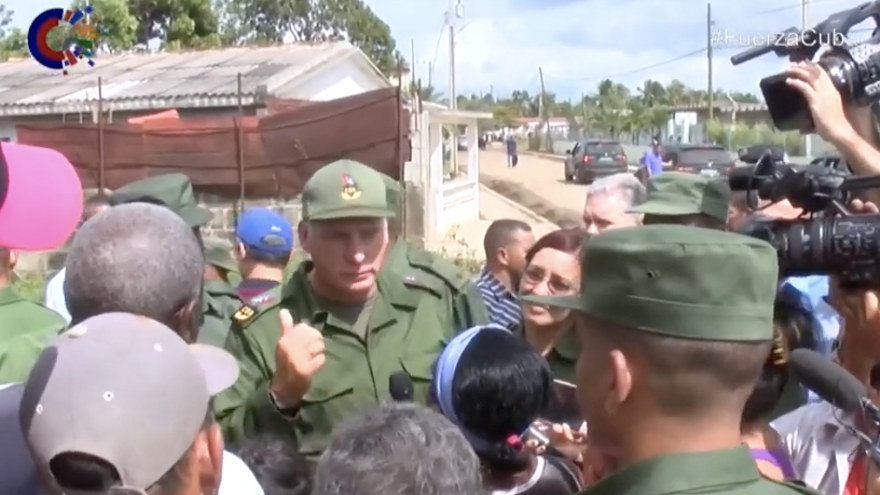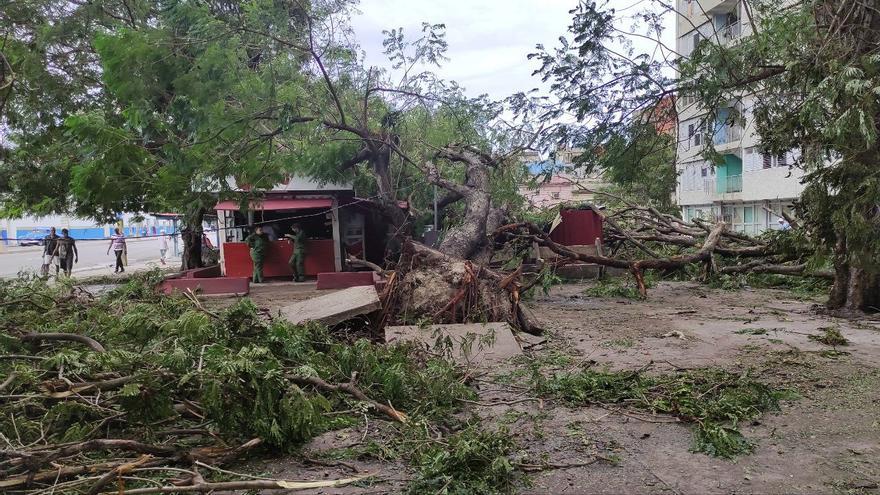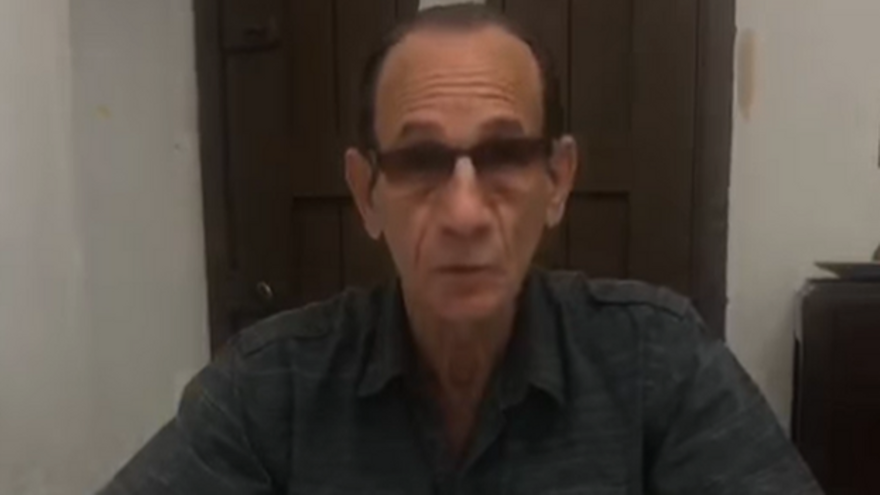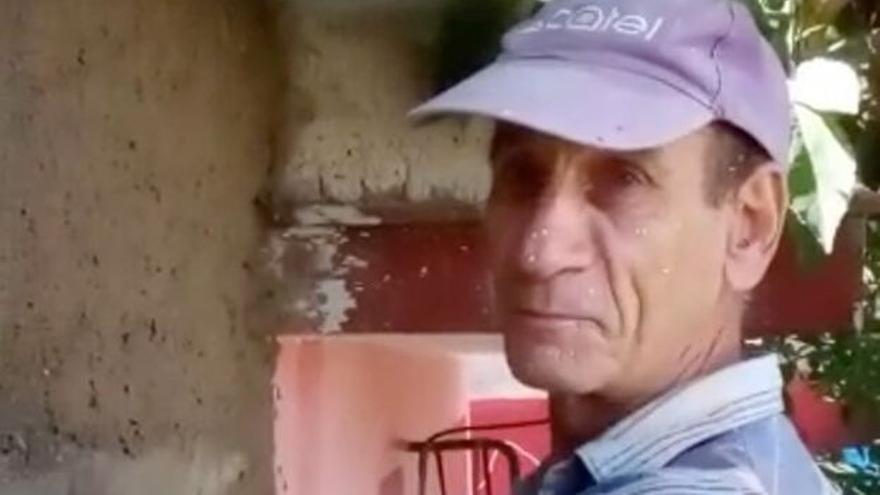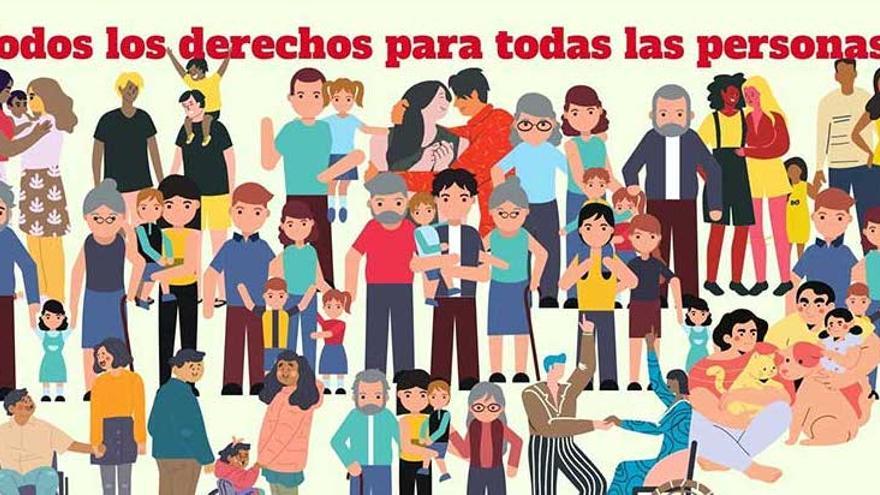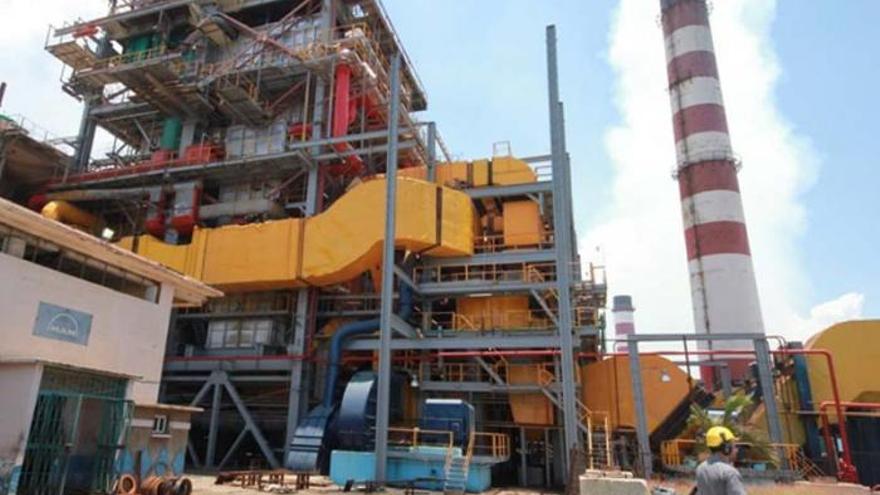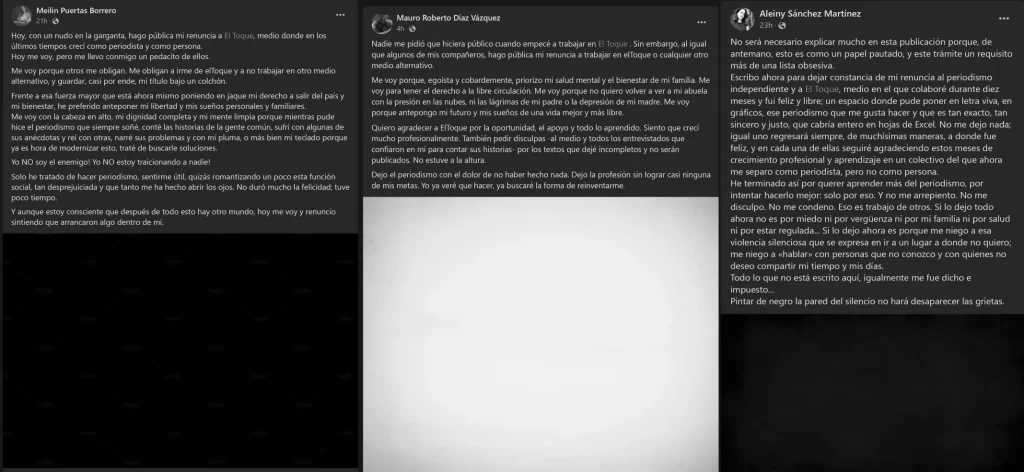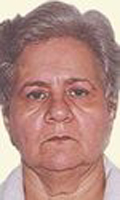
![]() 14ymedio, Elias Amor Bravo, Economist, 5 October 2022 — Attentive to the first measures announced by the regime for precariously addressing the effects of Hurricane Ian in Pinar del Rio. The leader has been the minister of Domestic Commerce, Betsy Díaz, who during the first edition of Mesa Redonda (Roundtable) on Cuban TV, announced a series of measures which I analyze in this blog entry.
14ymedio, Elias Amor Bravo, Economist, 5 October 2022 — Attentive to the first measures announced by the regime for precariously addressing the effects of Hurricane Ian in Pinar del Rio. The leader has been the minister of Domestic Commerce, Betsy Díaz, who during the first edition of Mesa Redonda (Roundtable) on Cuban TV, announced a series of measures which I analyze in this blog entry.
Apparently, the hurricane delayed the regular supply of family food baskets as a result of the “slowdown of activities at the ports, and although there are other products which had already arrived in the country, they needed to halt operations and it was not possible to deliver these, as is customary, before the first of each month.”
We need to look at the unbelievable. The food baskets stuck at the ports due to the hurricane. Not even Mrs. Díaz herself believes that. She later said that “we are ending the coffee distribution, except on the Isle of Youth and Holguín; we are finalizing a substitution for the yogurt, which could not be produced; and we are finishing up the delivery of last month’s meat products throughout eight territories such as La Habana, Mayabeque, Pinar del Río, Sancti Spíritus, Matanzas, Ciego de Ávila, Holguín and Granma.”
Instead of forgetting about the food basket for once, they back themselves into a corner and proceed with the distribution of goods in dribs and drabs; such that the only reaction it elicits is popular indignation. The bureaucratic planners do not understand that every Cuban is different and that treating everyone the same is a big mistake. The precariousness of the measures seem insufficient for the 903 damaged facilities, of which 22 are warehouses, said the minister. Furthermore, 871 retail units were affected; of these 520 bodegas (ration stores], 429 in Pinar del Río. continue reading
With regard to the energy deficit caused by Ian as it passed through the westernmost provinces, the minister stated that they have begun distributing charcoal for cooking. That is, a return to a past long ago.
She also said that there is a delay in the distribution of domestic gas in the provinces of Holguín, Ciego de Ávila, Granma and Las Tunas, as well as delays in the distribution of salt as all operations are paralyzed. It is not strange that people protest in a situation such as this, absolutely not justified by the effects of the hurricane. The minister concluded by saying that all inputs for the food basket are in the country, for which she begged the population for calm in this matter.
She added that “as of October 6th, food modules for the affected provinces,” including the distribution in four provinces and the special municipality of Isle of Youth, [will contain] supplementary food, taking into consideration the damages to agriculture and the energy deficit.
Specifically, three additional pounds of rice for the entire population of the territories mentioned above. Similarly, preserved meat will be distributed depending on household size. “This measure will benefit more than 3,553,000 consumers,” according to the minister who also announced more potatoes, hygiene products, grains in Pinar del Río and Havana, and beginning on October 6th, food modules for all consumers. She even spoke of mattresses for those who have requested them. Dribs and drabs instead of liberalizing and freeing markets.
She references aid received from international organizations such as the World Food Programme, specifically tents, tarps, lanterns, mobile warehouses to protect foodstuffs, and kitchen kits, which will be controlled by the communist Defense Councils.
But of everything mentioned above, the most interesting has to do with the sale of construction materials, especially for the facilities and homes affected by the hurricane.
And the solution is subsidies. More spending. People affected may be assessed for subsidies, access to bank loans, or could pay cash if they have the financial means to do so; also, as a new feature, they are offering payment plans to sell these goods.
The discount is 50% of the price. This is the only thing being rolled out in a singular and generic manner; it is the same for a Cuban who earns 2,500 pesos per month and one who earns 5,000 per month. This is communist equality, that later ends up creating shameful distortions in society. Because, furthermore, it subsidizes 50% of the materials for someone who is without a home or business due to the hurricane, and someone who has some roof or wall damage which requires minor repairs.
Has no one thought of adjusting the percentage of the subsidy? It seems unreal that in a country with a centralized economy and planning, aid cannot be tailored to the personal circumstances of the applicant. Providing equal aid to everyone is pure communist demagogy and lack of motivation to work for the collective good. The minister still has time to change the aid formula and stop distributing products as if this were an old parroquial charity office. During catastrophic situations in communist Cuba, public administration leaves much to be desired.
Translated by: Silvia Suárez
____________
COLLABORATE WITH OUR WORK: The 14ymedio team is committed to practicing serious journalism that reflects Cuba’s reality in all its depth. Thank you for joining us on this long journey. We invite you to continue supporting us by becoming a member of 14ymedio now. Together we can continue transforming journalism in Cuba.

